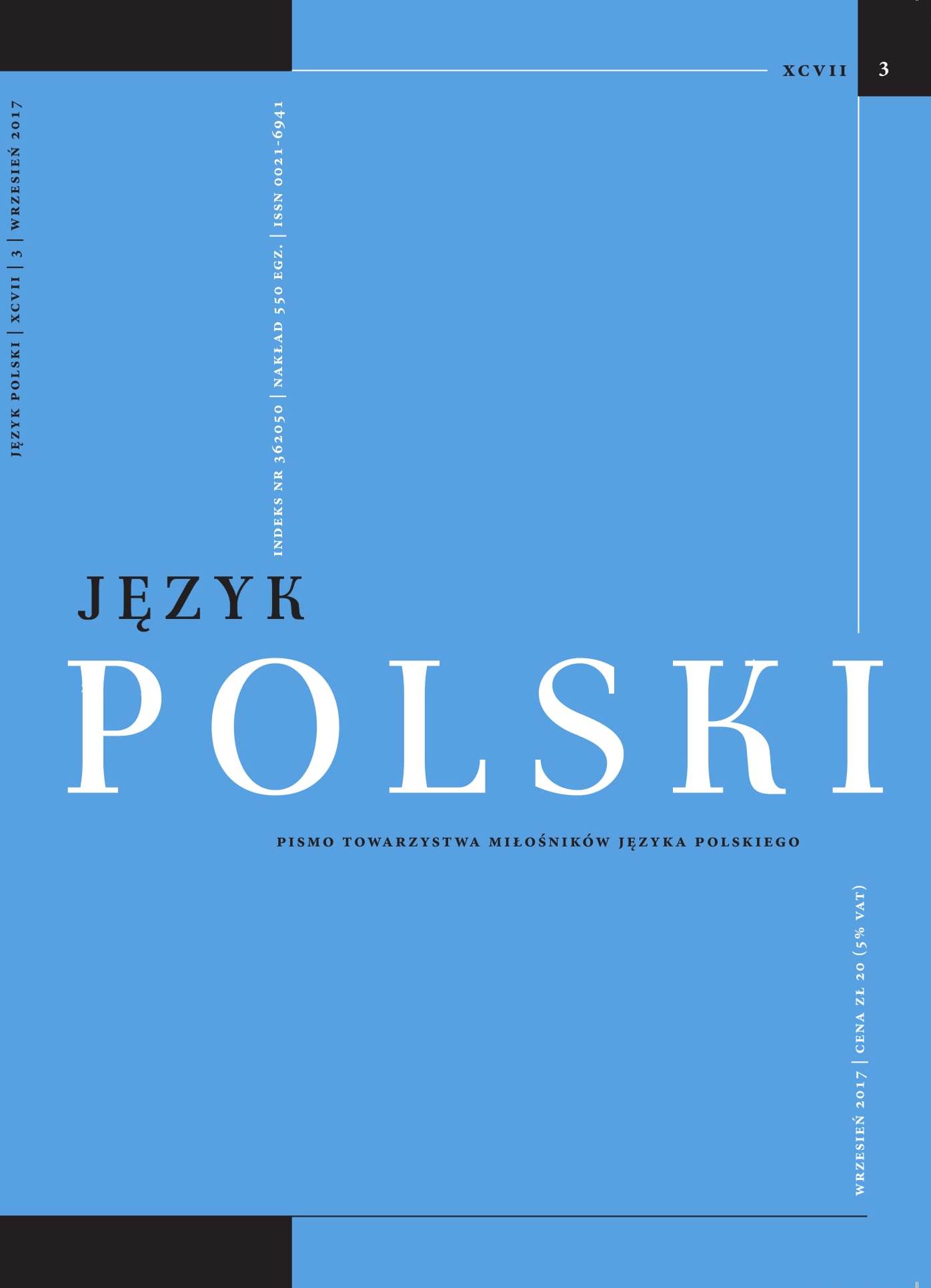„Piekielny” czy „Piekielna”? Konotacja nazwisk przymiotnikowych a wybór przez kobiety ich męskiej postaci
“Piekielny” or “Piekielna”? Connotation of surnames with an adjective declension and women’s choice of their masculine form
Author(s): Justyna B. WalkowiakSubject(s): Theoretical Linguistics, Applied Linguistics
Published by: Towarzystwo Miłośników Języka Polskiego
Keywords: feminine surnames; Polish surnames; adjectival surnames; feminine surname endings
Summary/Abstract: In the article adjectival Polish surnames ending with -y, -i are analysed. Though their ratio in the overall onomasticon is relatively low, they are characteristic as far as their feminine forms are concerned: for most of the time since 1945 women have been able to choose between their masculine or feminine form. An attempt has been made to explore how such choices, accumulated over the years, are reflected in the synchronic data from the beginning of the 21st century. The study focuses on selected surnames identical with adjectives potentially applicable to humans – their looks (e.g. Szczerbaty ‘gap-toothed’, Chudy ‘thin’), character (Odważny ‘brave’, Wesoły ‘merry’) and other features that may be used of humans (Biedny ‘poor’, Ważny ‘important’). It was assumed that negative connotations (connected with surnames such as Ciężki ‘heavy’, Postrzelony ‘nutty’) would increase the likelihood of opting for the masculine form in order to distance oneself from the appellative meaning of the same-sounding adjective. Such a correlation has indeed been found. Besides, the relationship between the evaluation of a surname and its frequency in the onomasticon was investigated. It has been found that the most popular surnames tend to be rated higher, which might be an instance of the mere exposure effect as proposed by Robert Zajonc.
Journal: Język Polski
- Issue Year: 2017
- Issue No: 3
- Page Range: 67-75
- Page Count: 8
- Language: Polish

